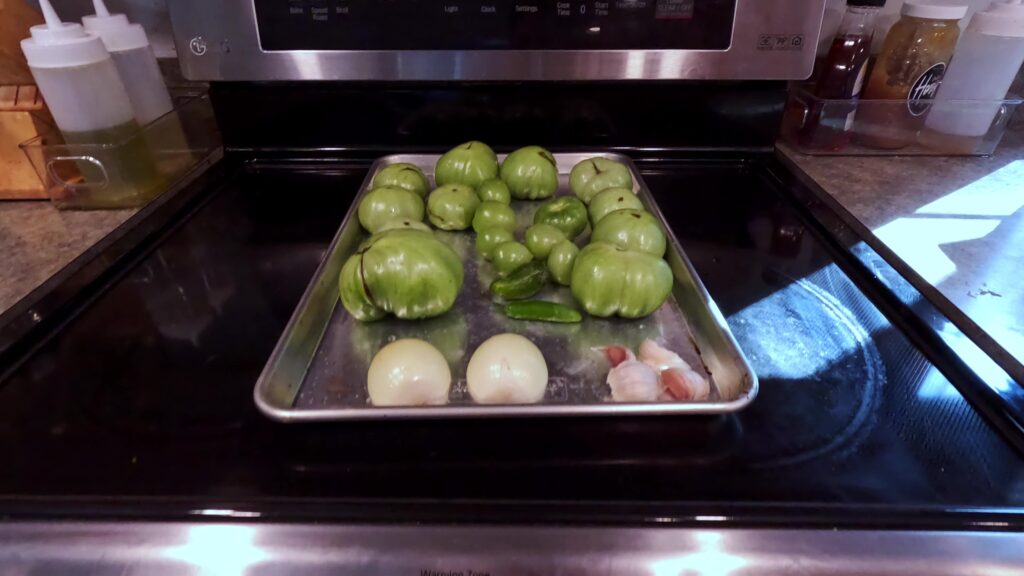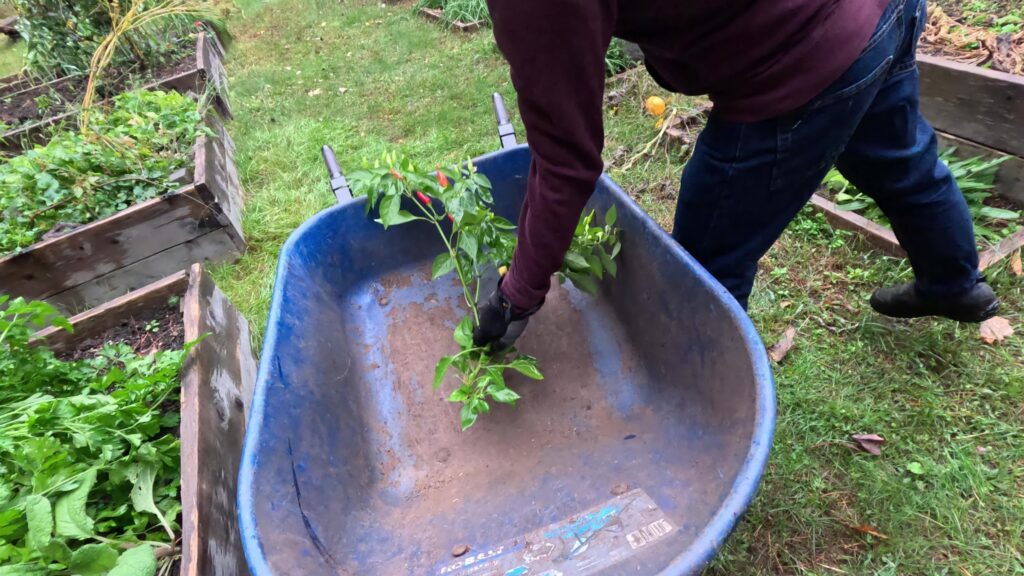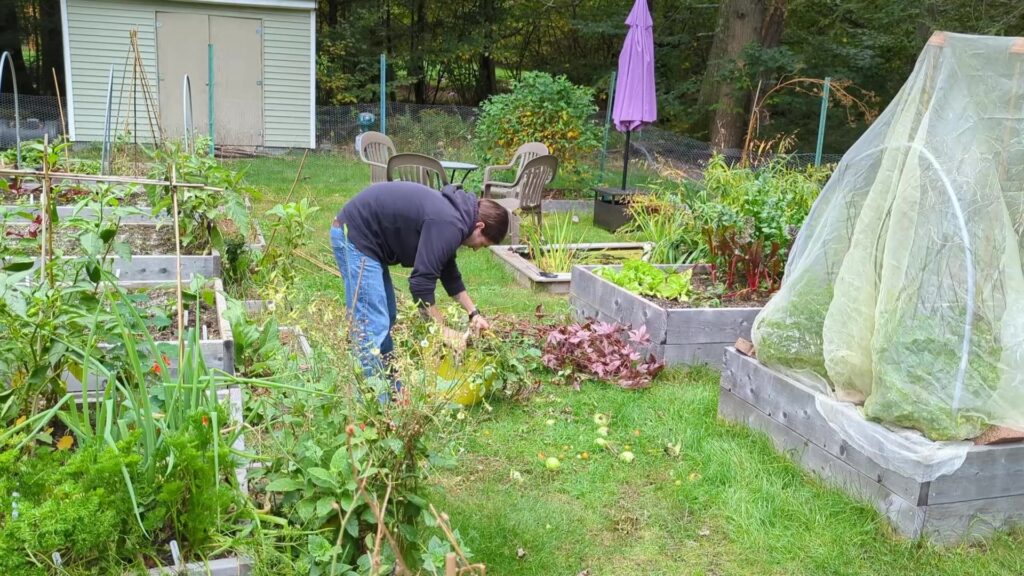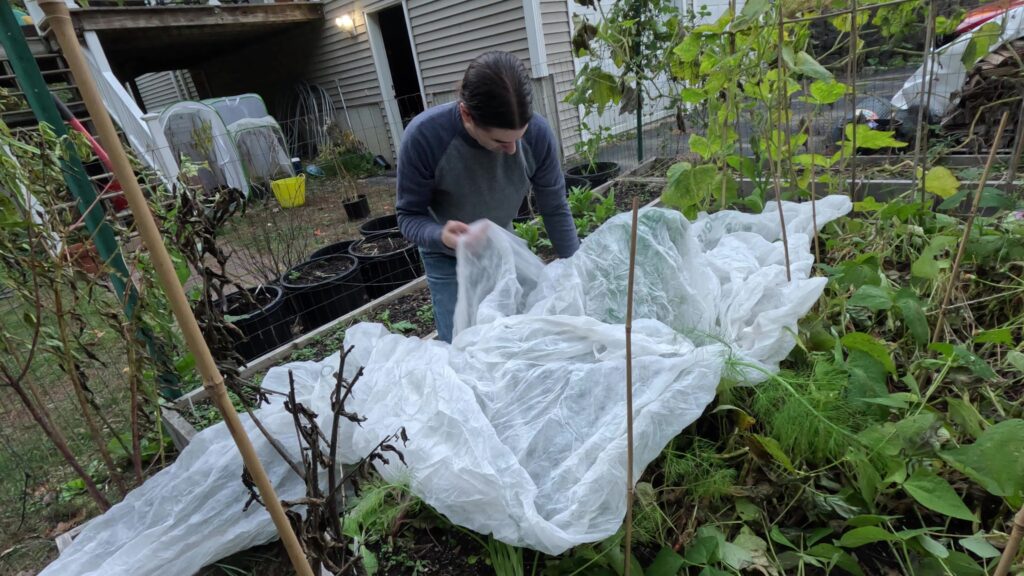Hey there, fellow garden enthusiasts! As the leaves start to change and the air gets crisp, it’s time to get our green spaces ready for the cooler months ahead. It can feel overwhelming to look at the garden in the fall and wonder how it will ever look good come springtime. But there a few, easy things you can do in your fall garden tasks that’ll set you up for success. Whether you’re all about veggies, herbs, or flowers, these easy steps will help you tuck your garden in for a cozy winter nap. Let’s dive in!
The companion video to this blog post is on our Youtube Channel: Fall Gardening Checklist
Gather the Last of the Summer Harvest
First things first, let’s collect those final summer goodies! It might seem obvious, but with the cooler days rolling in, your summer crops are winding down. Now’s the perfect time to do a garden sweep and gather up what’s left.
We always end up with a lot of tomatoes that haven’t fully ripened. But they are still tasty! Just grab those green tomatoes, some onion, garlic, some spicy peppers, such as serrano or jalapeño. Then roast them in the oven, blend, and voila! You’ve got a delicious salsa that’s perfect for freezing and enjoying later this fall and winter.

Speaking of peppers, you can either harvest the last ones or, if you’re feeling adventurous, try overwintering your pepper plants. (I’ll link a video on how to do that at the end of this post, so stay tuned!)

Keep an eye out for any other end-of-season treasures too. Those fall raspberries? Absolutely delicious! In fact, I think they might even taste better than the summer ones. If you’re looking for some great raspberry varieties, Heritage and Caroline are my top picks – they’re super productive and oh-so-tasty!
Compost Garden Waste
As you clear out spent summer plants, add them to your compost pile. This “garden waste” is actually a valuable resource for building healthy soil. To speed up the composting process:
- Mow over larger plant debris to break it down into smaller pieces
- Mix in other yard waste like grass clippings or fallen leaves
- Turn your compost pile regularly to aerate and encourage decomposition

Extend the Growing Season
Just because summer is over doesn’t mean your gardening has to stop. There are several ways to prolong your harvest:
- Set up mini greenhouses to grow cold-hardy greens throughout winter
- Use row covers or cold frames to protect tender plants from early frosts
- Plant winter-hardy varieties that can withstand cooler temperatures, such as Mache, Claytonia, and Spinach
You can be as conservative or adventurous as you’d like. We have had great success growing greens through the winter – and that way we don’t have to wait until spring to pick salad from the garden. Depending on where you live, you may need to snow shovel to get to the garden, but it’s well worth the effort.
Plant Cover Crops
Protect and enrich your soil over the winter months by planting cover crops. These plants help prevent erosion, suppress weeds, and add nutrients to the soil. We like to plant winter greens, as discussed above, but if you’ve missed the window on starting seeds outside, don’t worry. Even some weeds can as natural cover and they’re easy to cleanup come spring.

Protect Frost-Sensitive Plants
Not everything we grow here at the Frog Pond Veg Patch is cold-hardy. But to keep the blooms coming (especially for pollinators looking for a meal), you can cover sensitive plants if there’s a light frost in the forecast (say, 36-33°F for the overnight low). This is worth the effort, especially if the temperatures are forecasted to rise after that.

For harder frosts (32-28°F), it’s time to let annual plants complete their lifecycle. This is also the ideal time to dig up and store tender bulbs like dahlias for next year’s garden.
The fall garden is still a wonderful place to spend time. With autumnal hues and the hum of pollinators enjoying the last of the blooms before they hunker down for winter, there’s still plenty to enjoy. And with a bit work you can set yourself up for a lovely springtime.
And if you’re interested in overwintering your pepper plants, we made a video on how to do just that. It really works and it’s a great way to have your favorite peppers for next year!
COMMENTS